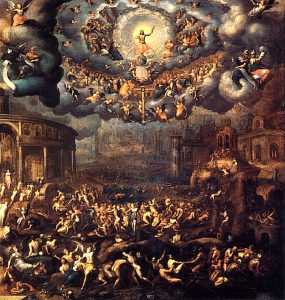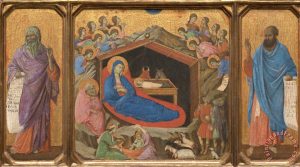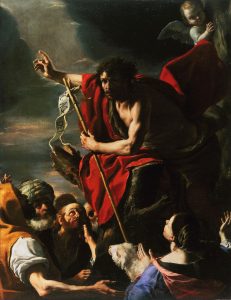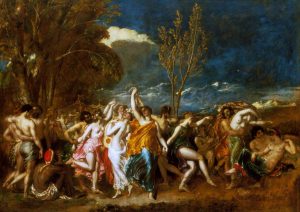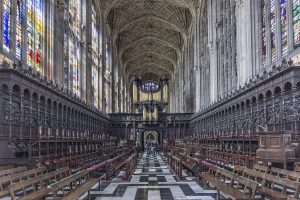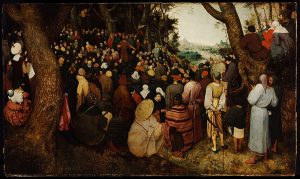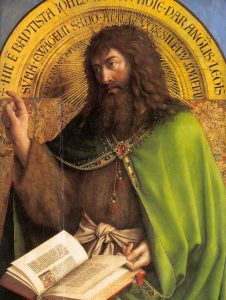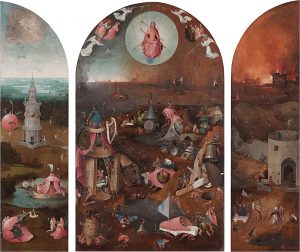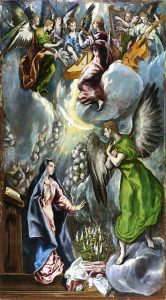Thoughts on Sunday’s Lessons for Dec. 10, 2023 (Advent 2B)
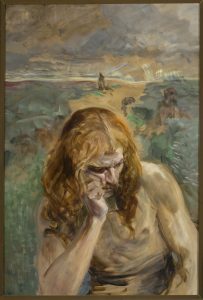
St. John the Baptist (1911), oil painting on board by Jacek Malczewski (1854-1929). National Museum in Warsaw, Poland. (Click image to enlarge.)
First Reading: Isaiah 40:1-11
The Messiah is coming! Get ready! The Messiah is coming! Make the way clear! Re-imagined in modern language, Sunday’s readings as we begin the second week of Advent might shout, “Roll out the red carpet for the Messiah!” The first reading from Isaiah – which may sound familiar, as Handel drew from it freely in his beloved oratorio, “The Messiah” – sings out comfort and hope to the people in exile. Jerusalem has paid doubly for her sins, the prophet declares, adding that although our lives are as short as grass and flowers, God’s word stands forever. Prepare the way! Make a straight highway in the desert, the prophet calls. Then the reading closes with the poetic image of a kindly Messiah who holds the lambs closely and gently leads the mother sheep.
Psalm: Psalm 85:1-2, 8-13
This portion of Psalm 85, edited to skip over several verses that express wistful doubt, shares the joyful hope of the Isaiah reading. The Psalmist remembers the people’s time in exile, rejoicing that God did, indeed, come to the people with comfort and peace. Even though the people had been sinful and broken their covenant with God, God forgave their iniquity and blotted out all their sins. The straight highway that was built at Isaiah’s command has become a path for God’s feet.
Second Reading: 2 Peter 3:8-15a
The short second letter in Peter’s name, the latest epistle in the New Testament, was likely written a century or more after the crucifixion. After so long, Christ’s expected return had surely become a concern for the early church. What did this delay mean? Perhaps God’s time is not like our time, the writer suggests in the letter’s closing lines. They echo a theme in the Isaiah reading: With God, “One day is like a thousand years, and a thousand years like one day.” Be patient, the author urged. Live holy and godly lives. Be at peace, be prepared, and wait patiently for God.
Gospel: Mark 1:1-8
We will spend most of the coming liturgical year going through the Gospel according to Mark. The earliest and shortest of the Gospels, Mark seems to move at a headlong pace, beginning here with no mention of the birth of Jesus or his death and resurrection. Mark simply declares the good news of Jesus Christ, the Son of God, then – proclaiming Isaiah’s prophecy of a messenger who will make the way straight for the Messiah – jumps right into the story of Jesus’s baptism by John the Baptist in the Jordan River. Jesus, John says, is so powerful that John is not worthy to stoop down and untie his sandals. John tells the crowd that he baptizes only with water, but Jesus will baptize with the Holy Spirit!

